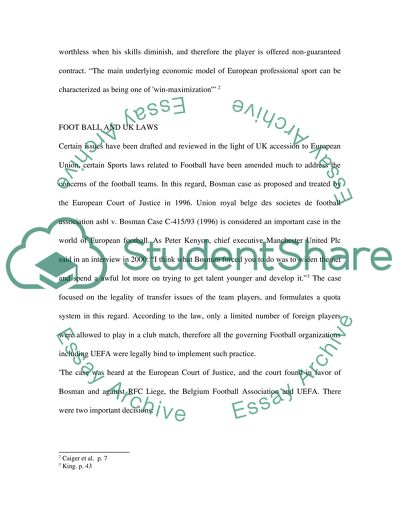Cite this document
(“Historical analysis of football contracts Essay”, n.d.)
Retrieved from https://studentshare.org/sports-and-recreation/1510774-historical-analysis-of-football-contracts
Retrieved from https://studentshare.org/sports-and-recreation/1510774-historical-analysis-of-football-contracts
(Historical Analysis of Football Contracts Essay)
https://studentshare.org/sports-and-recreation/1510774-historical-analysis-of-football-contracts.
https://studentshare.org/sports-and-recreation/1510774-historical-analysis-of-football-contracts.
“Historical Analysis of Football Contracts Essay”, n.d. https://studentshare.org/sports-and-recreation/1510774-historical-analysis-of-football-contracts.


